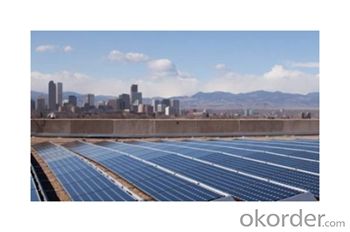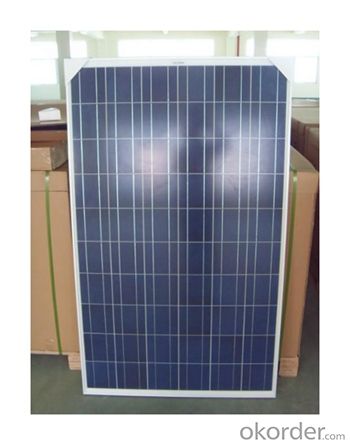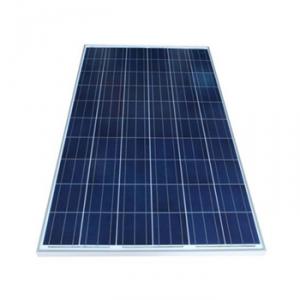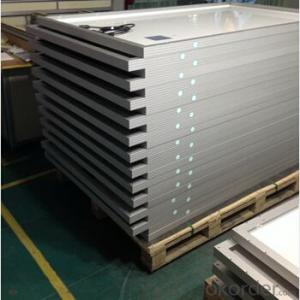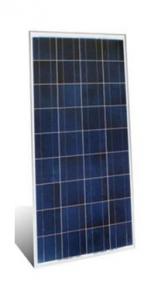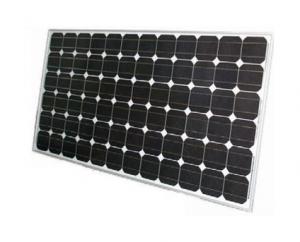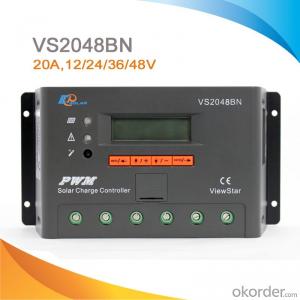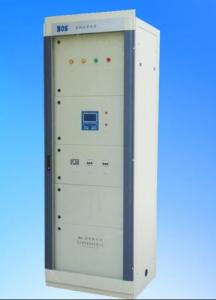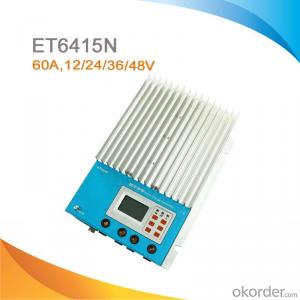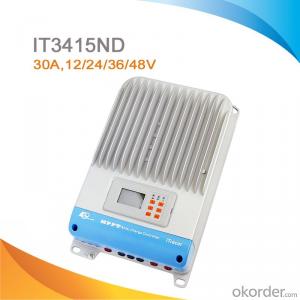Solar Panels Controllers for Poly-Crystalline 245W 156*156 Solar Modules
OKorder Service Pledge
OKorder Financial Service
You Might Also Like
Solar Module Descriptions:
Solar Power Modules (known as Photovoltaics - PV) can generate electricity for your home or business, either as part of a stand-alone solar power system, or for buildings already connected to the local electricity network.
PV systems use the most abundant energy source on the planet, solar radiation, to generate electricity. They are silent, consume no fuel and generate no pollution. They also contribute to the reduction of greenhouse gas emissions; a 2kW PV system on a house will prevent the emission of about 40 tonnes of CO2 during its projected 30 year lifetime. Furthermore, the use of PV will reduce your electricity bills and exposure to fluctuating and steadily rising electricity prices.
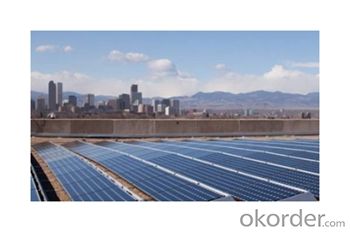
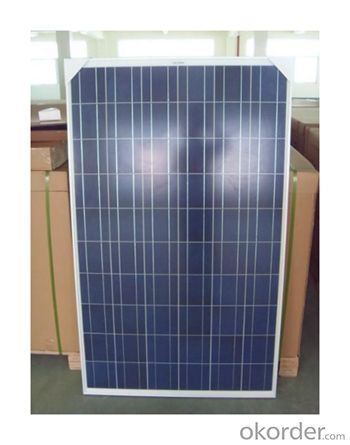
Electrical Characteristics
Max-power (W) | 245 |
Max-Power Voltage (V) | 30.40 |
Max-Power Current (A) | 8.06 |
Open-Circuit Voltage (V) | 37.50 |
Short-Circuit Current (A) | 8.66 |
Mechanical Characteristics
Cable type, Diameter and Length | 4mm2, TUV certified, 1000mm |
Type of Connector | Compatible with MC4 plug |
Arrangement of cells | 6*10 |
Cell Size | 156*156 |
Dimension | 1580*1069*45 |
Weight | 19.5Kg |
Glass, Type and Thickness | High Transmission, Low Iron, Tempered Glass 3.2mm |
Features
Guaranteed positive tolerance 0/+5w ensures power output reliability
Strong aluminum frames module can bear snow loads up to 5400Pa and wind loads up to 2400Pa.
Excellent performance under low light environments (mornings evenings and cloudy days)
12 years for product defects in materials and workmanship and 25 years for 80% of warranted minimum power.
Certifications and standards: IEC 61215.
Manufactured according to International Quality and Environment Management System (ISO9001, ISO14100).
FAQ
Q: Do you have any MOQ limit?
Our MOQ is 200 pieces.
Q: How long is the warranty period for the solar modules?
15 years 90% of its nominal power rating.
25 years 80% of its nominal power rating
Q: What is PV & how does it work?
PV stands for photovoltaic. Photo = Light and Voltaic = Electricity. A solar cell converts light to electricity.
A solar cell is made of silicon. Computer chips are made of this same material. Basically, when light strikes the surface of a solar cell some of it is absorbed into the silicon. This light energy bumps the electrons loose and causes energy to flow.
By packaging approximately 36 solar cells together a solar panel or a solar module is created. When you have more then one solar panels you create a solar array.
- Q: How does a solar controller handle power fluctuations in the system?
- A solar controller handles power fluctuations in the system by constantly monitoring the voltage and current levels of the solar panels. When there is an increase in power, the controller regulates the flow and redirects any excess energy to the battery bank for storage. Similarly, if there is a decrease in power, the controller compensates by drawing additional power from the battery bank to maintain a steady supply. This control mechanism ensures a stable and consistent power output from the solar system, regardless of fluctuations in sunlight or energy demand.
- Q: Can a solar controller be used with solar panel grounding systems?
- Yes, a solar controller can be used with solar panel grounding systems. A solar controller is responsible for regulating the power output from the solar panels to the connected batteries or grid, and it does not interfere with the grounding system. Grounding is an essential safety measure in solar installations to protect against electrical faults and lightning strikes. Therefore, using a solar controller does not affect the functionality or effectiveness of the grounding system.
- Q: Are there any safety features built into solar controllers?
- Solar controllers come with multiple safety features. One of the primary safety features is overcharge protection. The purpose of solar controllers is to prevent batteries from getting overcharged, which can result in damage or even explosions. The controller constantly monitors the battery voltage and adjusts the charging current to ensure optimal charging without any risk of overcharging. Another safety feature is reverse polarity protection. This particular feature safeguards the solar controller from any potential damage caused by accidentally reversing the battery or solar panel connections. It effectively prevents short-circuits or harm to the controller. Furthermore, many solar controllers incorporate over-discharge protection. This feature prevents excessive discharge of the battery, which can lead to reduced lifespan or irreversible damage. By continuously monitoring the battery voltage, the controller automatically disconnects the load when the voltage drops below a specific threshold. Moreover, certain solar controllers offer temperature compensation. This feature adjusts the charging voltage according to the battery's temperature. It guarantees proper charging regardless of the ambient temperature, thereby extending the battery's lifespan. In conclusion, solar controllers are equipped with a range of safety features to ensure the protection of batteries and the controller itself. These features contribute to the safe and efficient functioning of solar power systems.
- Q: Can a solar controller be used with solar-powered water pumps?
- Yes, a solar controller can be used with solar-powered water pumps. A solar controller helps regulate and optimize the charging process of the solar panels, ensuring they deliver the right amount of power to the water pump's motor. This helps protect the pump from overcharging or undercharging, thus maximizing its efficiency and lifespan.
- Q: What is the purpose of a solar controller?
- The purpose of a solar controller is to regulate and optimize the charging process of solar panels or batteries. It controls the flow of energy between the solar panels and the batteries, preventing overcharging, overdischarging, and other potential damages. Additionally, solar controllers can provide important data and monitoring functions, ensuring the efficiency and longevity of the solar power system.
- Q: Can a solar controller be used with a mobile solar setup?
- Certainly! A mobile solar setup can indeed utilize a solar controller. When it comes to solar power systems, including mobile setups, a solar controller is an indispensable component. Its primary role is to regulate the electricity flow from the solar panels to the battery bank, ensuring optimal charging while safeguarding against overcharging or battery damage. The significance of a solar controller is further amplified in mobile solar setups, such as those found in RVs, boats, or portable power stations. It plays a vital role in maintaining a stable power supply, shielding the batteries from overcharging or discharging, and maximizing the solar panels' efficiency. A solar controller effectively monitors the battery voltage and adjusts the charging parameters accordingly. It commonly includes features like battery temperature compensation, battery equalization, low-voltage disconnect, and various charging modes (such as bulk, absorption, and float) to optimize charging and extend battery life. Furthermore, certain advanced solar controllers offer additional functionalities like remote monitoring, data logging, and compatibility with mobile apps. These features empower users to conveniently monitor and control their solar setups. Hence, it is highly recommended to employ a solar controller with a mobile solar setup to ensure safe and efficient operation, protect the batteries, and make the most of solar energy utilization.
- Q: What is the purpose of the load output on a solar controller?
- The purpose of the load output on a solar controller is to provide power to a connected load, such as lights or small appliances, directly from the solar panel system's battery. This feature allows for the utilization of solar energy during periods when the sun is not shining or when the solar panel system is not generating enough power to meet the load requirements. By connecting the load directly to the battery, the solar controller ensures that the load receives a consistent and stable power supply, maximizing the efficiency and reliability of the solar system. Additionally, the load output often includes various protection features, such as overcurrent and overvoltage protection, to safeguard the connected load from any potential damage. Overall, the load output on a solar controller serves to enhance the functionality and versatility of a solar panel system by enabling the utilization of solar energy even when the conditions are not optimal for power generation.
- Q: Can a solar controller be used with solar panel canopy mounts?
- Yes, a solar controller can be used with solar panel canopy mounts. The solar controller regulates the flow of electricity from the solar panels to the battery or grid, regardless of the mounting system used.
- Q: Can a solar controller be used in a residential solar system?
- Yes, a solar controller can be used in a residential solar system. A solar controller is an essential component that regulates the charging and discharging of batteries in a solar system, ensuring optimal performance and protection. It helps prevent overcharging and over-discharging of batteries, thus increasing their lifespan. Therefore, a residential solar system can greatly benefit from the use of a solar controller.
- Q: Can a solar controller be used in a solar-powered space elevator system?
- No, a solar controller cannot be used in a solar-powered space elevator system. A solar controller is designed to regulate the charging and discharging of batteries in solar power systems, while a space elevator system requires a completely different set of components and technologies to function, such as strong and lightweight materials, a counterweight, and a climbing mechanism.
Send your message to us
Solar Panels Controllers for Poly-Crystalline 245W 156*156 Solar Modules
OKorder Service Pledge
OKorder Financial Service
Similar products
Hot products
Hot Searches
Related keywords


